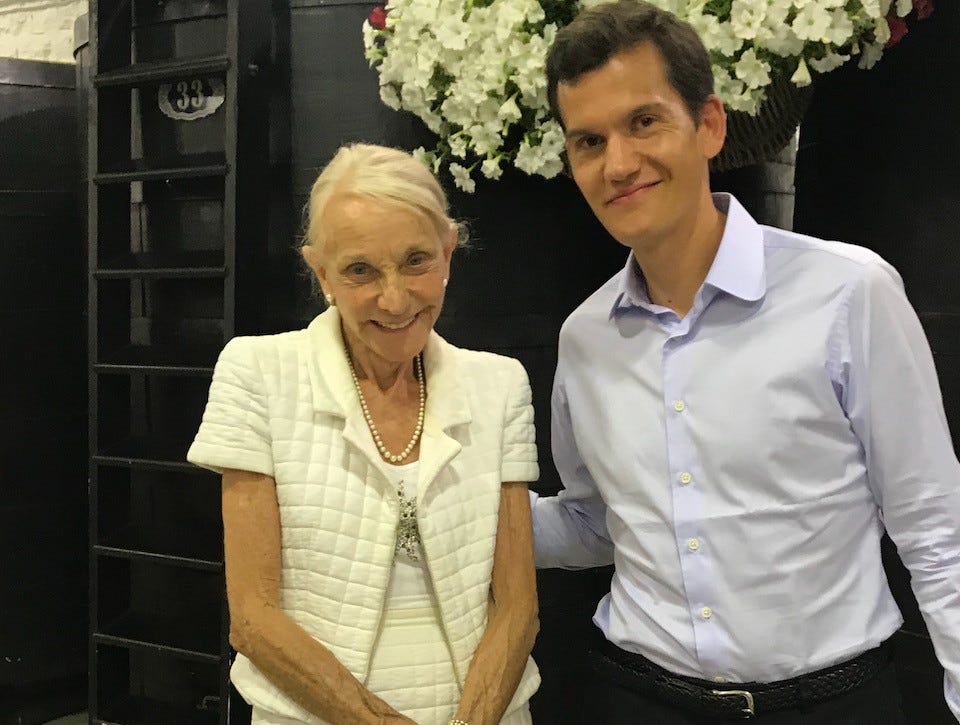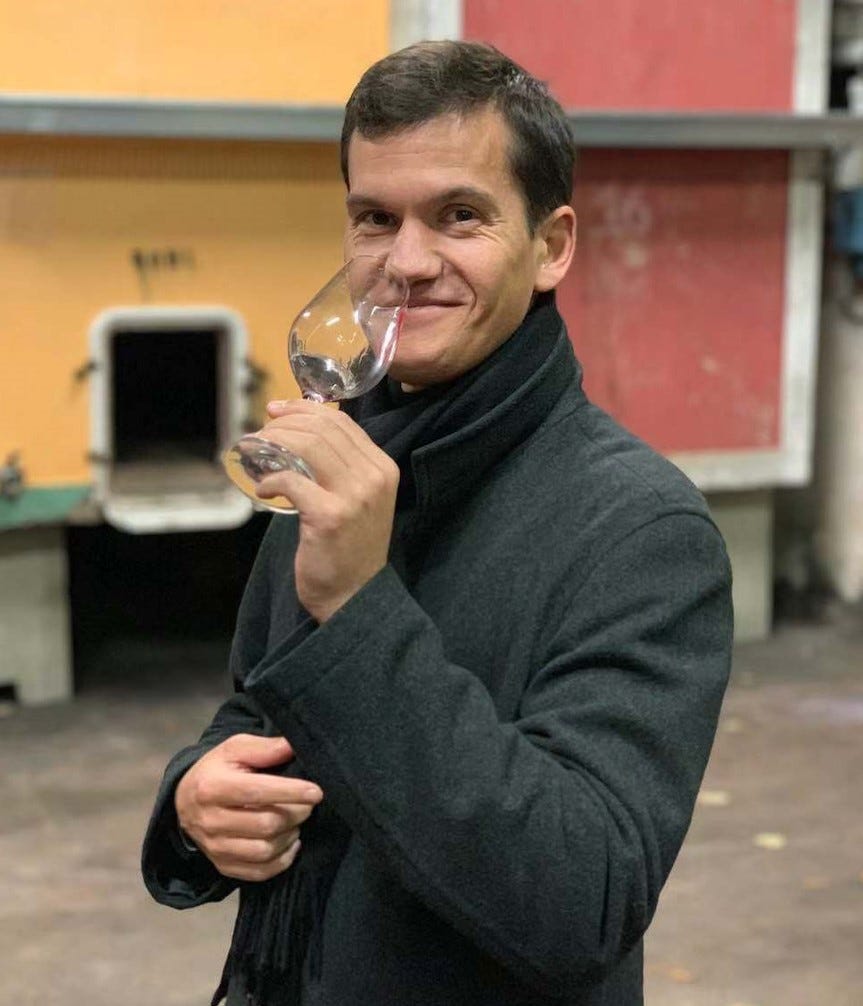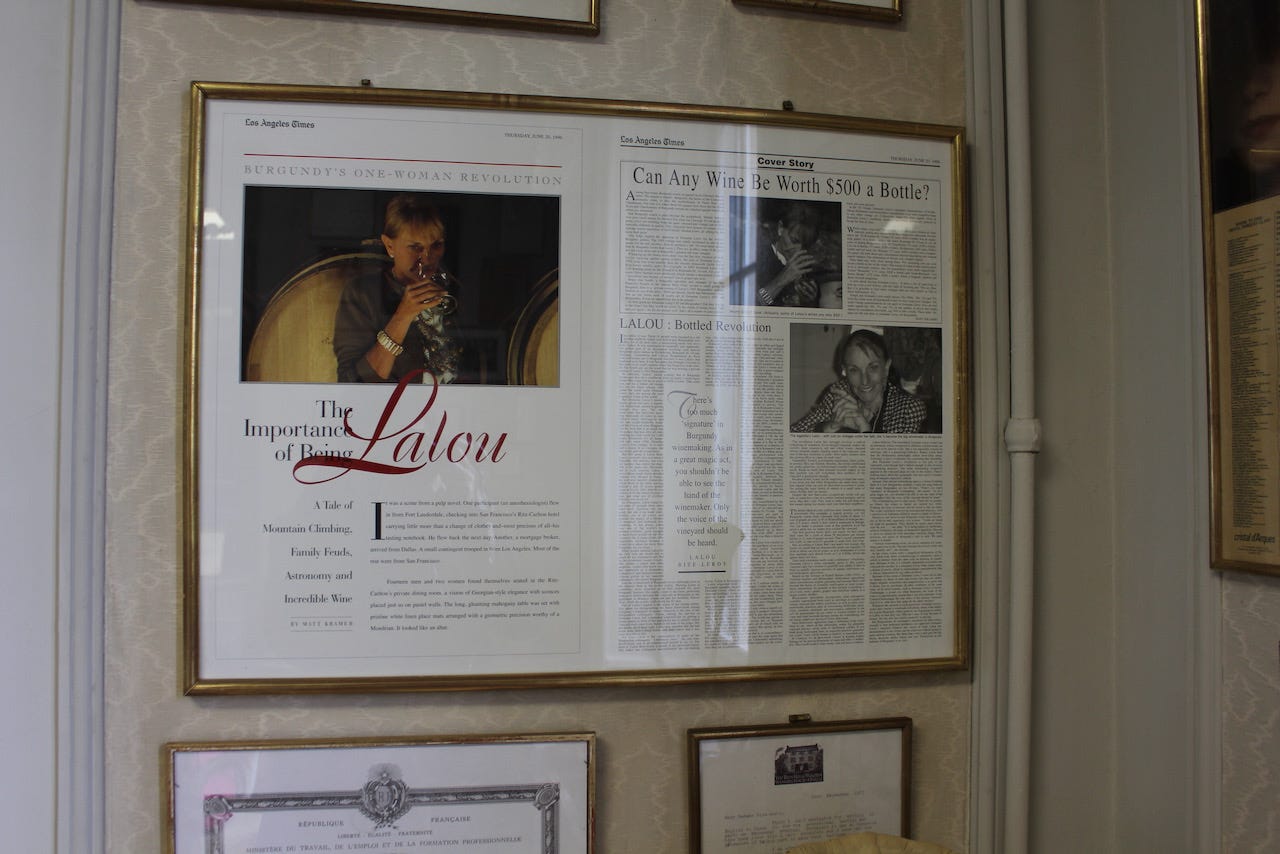I think it’s hard to imagine a time before the Hong Kong Burgundy craze—maybe once upon a time long long ago. However when Julien Froger first moved to Hong Kong from the UK to set up his first company specialising in Burgundy more than 10 years ago, he was there to help shape the city’s thirst for the region’s wines. Even then he has not rested on his laurels, he has an uncanny ability to keep up with the pulse in Burgundy and other areas of France, constantly bringing in new and rising stars of tomorrow to the market. Below is our conversation together and it is lightly edited for clarity.
How long have you been studying, traveling to and drinking Burgundy wines?
Well this sounds long but since I was 16 years old, so 24 years—ouch! It all started thanks to my wine teacher at culinary school. I was bad at school and went very early to some more professional studies and found some interest in training to be a chef. In the beginning, there were also some wine courses at the culinary school and so my interest developed gradually whilst I was training in some of the greatest restaurants in France. After realising how demanding it is to work in restaurants and being more and more passionate about wine and meeting with those who make the wine, I really decided that it would be my life.
What has been the greatest changes you've seen in Burgundy over the last ten years?
First, quality has improved so much thanks to the new generation taking over the family estates: they've been trained well, they travelled, they are open minded. That might sound weird but the producers now talk to each other in the same village. They learn together, exchange point of views and improve as a whole whilst in the past they were barely tasting each other wines—in the same village!
Second, pricing. Being fortunate enough to be having a business both in Hong Kong and in Mainland China, we have experienced a surge of demand for Burgundy wines that was unthinkable even 10 years ago. I remember being in Hong Kong in 2010 and struggling to promote Burgundy wines whilst everyone was thinking about Bordeaux.. All that increasing demand has inevitably driven prices up and up.
Who is doing the most exciting thing in Burgundy today? Why?
Lalou Bize Leroy has shown the path 30 years ago by being innovative, shifting to organic practices (after reading an interview with Nicolas Joly) whilst everyone was criticizing her. Now she is the Queen in Burgundy, who simply makes the best wines. That has led younger winemakers to study what she was doing and push forward to raise the quality of their wines. These days, Charles Lachaux is on the spotlight, not only because he is using many of Lalou's methods in the vineyard but also because he is re-inventing it and continues to push even further with different practices that no one in Burgundy dare to implement. A simple example is his choice, this past year, not to plough his soils thus leaving mother nature to grow in between rows of vineyards. That would seem normal for everyone to let mother nature do her work but the result is a drop in production which is massive. It's a financial challenge but the ultimate goal is quality. Some other winemakers are still under the shadow simply because they are not located in Vosne Romanee but they do the same sort of work; I am thinking of Jean Marc Vincent in Santenay, Bruno Lorenzon in Mercurey and Hubert Lamy in Saint Aubin who have been the first people to do high density. They are making wines that are equal to other top wines in Cotes de Nuits. Burgundy is not always expensive. Of course, Bizot, Cecile Tremblay, Dugat Py are amongst my really really exciting domaines but everyone heard about these already!
What are the most serious challenges for the regions to come in both the short term future and the long term future?
Short term and long term future serious challenges is climate change. We have seen it with the "Gel Noir" (Black frost) event last week (a sort of frost combined with snow), something that only happens once in a century. Summers are hotter and hotter and that's a threat because the alcohol increases too quickly and sometimes the phenolic maturity is not there. They end up harvesting wines at 15 degrees alcohol sometimes. The traditional way Burgundy wines were made no longer works: they have to train the vines higher to increase shadow on the grapes, they have to purchase lands in higher altitude to be able to have a cooler climate, there are tons of things they will have to implement in the coming years if they do not want to lose some part of their production. Some have already done it (those producers quoted above), some others wait for the new generation to take over and do this tremendous work.
What is your opinion on the current Burgundy bubble and do you remain bullish in its future?
Let's be reasonable. There are 1.5 billion Chinese people and a good part of it starts to have enough money to enjoy the pleasures of life. The demand for Burgundy wines is unstoppable and we see it everyday in our Beijing or Shanghai office. The Burgundy classification has not changed for nearly 100 years old, that means the production of quality Burgundy wines will not increase. Simple proof is the investments LVMH made in buying Clos des Lambrays: Bernard Arnault is known to have a long perspective for his investments (remember he purchased Yquem long time ago). And we did not talk about the Brazilians, etc...
In fact I am fascinated to see people always thinking the bubble will stop, when you look at it 10 years ago the same question was here and last time I visited Domaine Leroy, Lalou Bize Leroy shown me a magazine from the Los Angeles times, in 1996 titled "Can any wine be worth 500USD a bottle?" with a photo of Lalou....
What are some potential impacts for drinkers, collectors and speculators?
I would guess speculators are all trying to move to Burgundy. Proof is the Liv-Ex exchange is shifting from Bordeaux to Burgundy more and more. Their problem is scale, they can't buy 100 cases of DRC so we do not see much investment businesses focusing on this region too much. It is mainly private collectors who want to secure wines for their lifespan.
They know the prices rise every year, so they buy literally all they can find and when they feel the price is too high, some other new wine lovers come in and grab their allocations and it goes on and on. They do not speculate on wine, they feel just happy that their value appreciates and that they can share bottles of it.
Drinkers complain Burgundy is expensive but I think it is because they do not trust their palate enough. Again, in Saint aubin, Marsannay, Fixin, Mercurey, Rully, Santenay for example, you can find amazing wines for less than 400 HKD a bottle. There are some terroirs there that can produce amazing wines if they are handled by the right vigneron.
What would your advice be for someone new to Burgundy and wants to start collecting?
First, to try to find friends who love wine so he could drink and learn with them. Combining it with a lot of reading to explore and make your own point of view, is important.
Second, get close to a few wine merchants so you get introduced to nice wines and can also learn from them.
Third, let's forget about saying "you should visit Burgundy" as it seems too far away for most people right now and it's getting too difficult!
Fourth, after a while, make sure you go into the direction that fits you well. Do you want to buy trophy wines and "collect" ? Or you simply want to enjoy drinking. That is two different paths...
Apart from Burgundy, what are other regions you think people should focus on and why?
I would recommend going deep into the Jura because it provides excellent values for wines that are sometime at the quality of really good Burgundy wines. Their terroirs are of high quality and given climate change, the producers are now able to reach good maturities and make superb wines. Savoie is also a paradise at the moment, with really talented young growers who for sure will be key producers in the future. Alsace is also an area that is bubbly at the moment with many many young growers changing the way wines were made before. And outside France, Germany for sure, with Switzerland.
An old fashioned question from wine interviews of yore: what would be your three desert island wines?
Yes, this question is definitely not matching with the label drinker attitude! It's just impossible!

Julien Froger is proprietor and director of La Souveraine. Visit their website here for more information.





